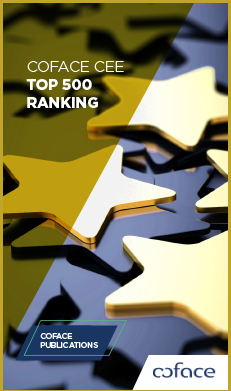

Ethiopia
Synthesis
major macro economic indicators
| 2020 | 2021 | 2022 (e) | 2023 (f) | |
|---|---|---|---|---|
| GDP growth (%) | 6.1 | 6.5 | 6.4 | 6.0 |
| Inflation (yearly average, %) | 20.4 | 26.6 | 34.0 | 29.1 |
| Budget balance (% GDP) | -2.8 | -2.8 | -3.7 | -3.1 |
| Current account balance (% GDP) | -4.1 | -2.7 | -4.0 | -3.5 |
| Public debt (% GDP) | 56.5 | 56.6 | 55.6 | 55.4 |
(e): Estimate (f): Forecast * Fiscal year from 8th July - 7th July; 2021 data: July 8, 2020 - July 7, 2021 ** Calendar year
STRENGTHS
- Large market (over 100 million people)
- Airline hub on the continent thanks to Ethiopian Airlines
- Public investment in infrastructure development
- Hydroelectric, mining, agricultural and tourism potential
- One of the continent’s main coffee exporters
- Opening and modernisation of the banking, financial and telecommunications sectors
WEAKNESSES
- Agriculture is not very productive and is sensitive to weather conditions
- Underdeveloped manufacturing sector
- Landlocked country
- Low foreign exchange reserves, import restrictions
- Persistent challenges in the business environment and governance
- Political and security instability
- Infrastructure gap, insufficient power supply
Risk assessment
Economic momentum returns following the signing of a peace agreement in Tigray
Ethiopia experienced weak economic growth during the 2021-2022 fiscal year as economic activity was weakened by the deadly civil conflict in the north of the country, agricultural production hit hard by persistent drought in the Horn of Africa, soaring inflation, and a foreign exchange shortage. Following the signing of a peace agreement in November 2022 that put an end to two years of war in the Tigray region, the country's economic activity is expected to accelerate moderately during the 2022-2023 fiscal year, but without regaining the same momentum seen in the previous decade (Ethiopia recorded average GDP growth of 10% between 2010 and 2019). While the Ethiopian growth model is based on investment in infrastructure (transport, energy and railways, etc.), the end of the conflict in Tigray should enable the resumption of public investment financed by external borrowing and the return of support from international donors. In this regard, the World Bank approved a USD 745 million assistance programme in December 2022. Despite the government’s political resolve to liberalise and privatise the economy, private investment will continue to be curbed by high interest rates and limited foreign exchange reserves and will be further crowded out by the resumption of public borrowing. Increased exports – particularly of agricultural and horticultural products (coffee, flowers, oilseeds, etc.), manufacturing products (textiles, leather, etc.) and electricity to Kenya – will be offset by the rising import bill so that net imports will make a neutral contribution to growth. In addition, agricultural activity, the socio-economic pillar of the country employing 65% of the population and accounting for 87% of exports, will remain very vulnerable to natural events (drought, floods, locust invasions) and could suffer from the persistence of the historic drought episode that has been raging for four consecutive years. Despite government subsidies to cope with high inflation, private consumption will be constrained by high food prices, which account for 40% of the household consumption basket. Rapid growth of money supply related to the internal financing of the budget deficit will keep inflation high in 2023.
Sovereign default risk despite slight reduction in twin deficits
In the run-up to obtaining an IMF financing programme, the government will attempt to consolidate public spending in the 2022-2023 fiscal year, but the high costs of post-conflict reconstruction and social spending to help households cope with inflation will put pressure on public spending in the short term and keep the budget deficit high. However, the introduction of new tax measures to broaden the tax base, exports of gas and electricity, as well as the sale of stakes in state-owned companies (Ethio Telecom, Ethiopia Airlines, etc.) should support revenues and help to slightly reduce the budget deficit. While the end of the conflict should allow give rise to increased external donor support to finance said deficit, the government will continue to finance internally through the central bank. Given the size of Ethiopia's external debt servicing costs (53% of total public debt) – the country is expected to face USD 2 billion in payments during the 2022-2023 fiscal year -– and the lack of external liquidity, the government is expected to benefit from debt restructuring under the G20 Common Framework and use likely IMF financing to meet its external commitments.
The current account deficit is expected to narrow slightly in 2022-2023, driven by a rising services surplus, while the structural trade deficit remains unchanged. Despite the increase in exports, higher world commodity prices and Ethiopian Airlines' fleet expansion plans will weigh on the import bill, notwithstanding their compression by the scarcity of foreign exchange on the official market, thus slowing the reduction in the trade deficit. However, export revenues from government services will increase via Ethiopian Airlines as international and regional travel resumes. Given the meagre foreign reserves and limited official foreign exchange inflows, the current account deficit will be financed largely by Ethiopian Airlines borrowing and FDI inflows from China to the services and agriculture sectors. With $1.5 billion in gross international reserves, or less than one month of current external payments, the country's external liquidity has continued to deteriorate in 2021-2022 and remains a major concern regarding the country's ability to absorb additional shocks. The imbalance between supply and demand for foreign currency continues to widen the gap between the official exchange rate of the Ethiopian currency and that of the parallel market (54 birr per USD on the official exchange market compared to 96 birr per USD on the parallel market).
Fragile peace agreement and high ethnic tensions
Ethiopia, a federal state divided into ethnically based regions, experienced its deadliest conflict since independence between November 2020 and November 2022 in the Tigray region. The conflict, which caused the displacement of millions of people and deep famine, originated in the rebellion of the Tigray People's Liberation Front (TPLF) against the federal government of Prime Minister Abiy Ahmed, who has been in power since 2018 and is accused of having progressively marginalised the Tigrayan minority (6% of the population) within the ruling coalition. Abiy Ahmed, from the country's largest ethnic group (the Oromos), has undertaken to reform the coalition in power for several decades (the Ethiopian People's Revolutionary Democratic Front) into a centralised national structure, the Prosperity Party (PP). The TPLF, which had a very large share of power in this coalition, refused to be incorporated into the PP and waged a two-year war against the federal government. Despite the peace agreement brokered by the African Union and other regional partners, under which the TPLF committed to a permanent cessation of hostilities and the restoration of federal authority in its region, Abiy Ahmed and the PP are facing a fragile political environment that is being destabilised by the aftermath of the war, active insurgencies in the south and west of the country (between the Oromo, Somali and Amhara ethnic groups) and internal tensions within the governing coalition. Although the next general election is expected to be held in 2026, increasing ethnic violence and internal insecurity are creating an uncertain political outlook.
Externally, the rapprochement between Sudan and Ethiopia in January 2023 over the Grand Ethiopian Renaissance Dam on the Nile marks a step towards resolving the regional dispute separating the two countries and Egypt since 2011. Ethiopia is also expected to renew its ties with its Western partners, particularly the United States, which is expected to restore the country's access to the African Growth and Opportunity Act (AGOA).
Last updated: June 2023



